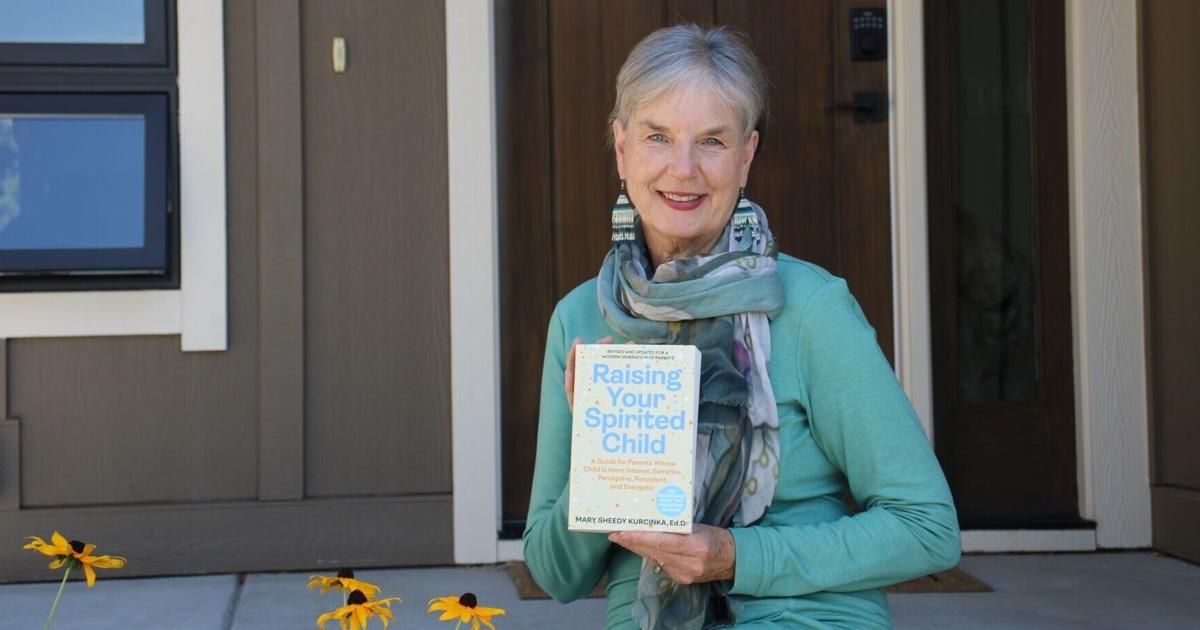At 13 years old, Mary Sheedy Kurcinka knew what she wanted to do with her life. She had read “Dibs in Search of Self” by psychologist Virgina Axline — a true story about an emotionally lost child’s journey to healing through play therapy.
That book, Kurcinka said, sparked her lifelong interest in the emerging field of early childhood education and child development.
“I knew early on that I wanted to work with families,” she said.
Today, Kurcinka is a renowned parent educator, behavior and sleep consultant with a doctorate in education. Originally from Minnesota, she now lives in Bozeman with her husband. She is the author of the bestselling parenting workbook “Raising Your Spirited Child” — now in its fourth edition, which came out Sept. 2.
The book aims to help parents understand their child’s — and their own — temperament. Drawing on research, Kurcinka offers a strength-based approach to parenting challenges.
Before becoming a parent herself, Kurcinka was already immersed in the world of parent education. She taught classes in Minnesota that helped families build healthy relationships while pursuing a graduate degree in family social science.
Despite her training, she said, parenting her own son was a challenge.
“I was an aunt at 10,” she said. “I was licensed as an early childhood teacher. I had a masters degree in family social science. I knew kids, and my son was taking me for a run for my money.”
When her second child was born, Kurcinka noticed some distinct differences in the two children’s behavior.
“Same mom, same dad — very different responses to their world around them,” she said. “And I started researching how this could be.”
Temperament, Kurcinka said, refers to an innate wired response to the world around us. In early childhood, temperament impacts how a child responds to the world and reacts to new situations or interactions.
“It’s as much a part of us as our eye color or hair color — right or left handed,” she said.
In studies of temperament, researchers have identified a range of traits that shape how children respond to the world around them, including factors such as activity level, intensity and sensitivity.
With the hopes of finding strategies to navigate a child’s temperament, Kurcinka noticed that most of the literature featured descriptors like “difficult” or “strong-willed.”
“The more I dug into it, the more I realized that my son was very much like my husband,” she said. “I adore my husband — I would marry my husband again in a second — and I just thought, ‘Nobody’s telling me that my son or my husband are difficult’ or ‘Let’s get rid of this’.”
“I coined the term ‘spirited’ because it is realistic,” she said. “There is a spirit to them. (They have) vibrancy and exuberance and passion and sensitivity — that’s who they are. Let’s focus on those strengths. Let’s address the challenges and give them the skills.”
Spirited kids, Kurcinka said, are just typical kids with different thresholds for stimuli.
“‘Raising Your Spirited Child’ is about temperament and the traits,” she said. “Those traits can be put on a continuum from low to high, mild to strong, easy to difficult — they’re on a continuum. The ‘spirited kids’ are on the high end of that continuum.”
“They’re more intense, they’re more persistent, they are more sensitive,” she said. “They are more energetic than their low-key peers.”
One example from the book is the difference between a spirited kid describes a family trip to the beach.
The easy going, low-key kid hops out of the car, runs joyfully across the sand and starts building a sandcastle without hesitation. In contrast, the spirited child reacts very differently to the sensations — the beach smells weird or the sand is too hot.
“It’s like this fire hose of sensory information coming to them,” Kurcinka said. “(Parents) have to understand they’re not just being a little jerk trying to ruin your family outing to the beach.”
What the book shows, she said, is that parents can predict these reactions and find ways to prevent or manage them.
“You have to understand the fuel source,” she said. “What are the feelings and needs behind it? A common issue people come to me with is the ‘morning wars’ — getting out of the house in the morning is just, it’s awful. There is no teachable moment in the middle of a meltdown.
“The first thing we got to do is take preventive actions with routine, with sleep and meals and our transitions in the day. If there’s 20 meltdowns a day, even a saint can’t be an effective emotion coach,” she said.
Kurcinka said she hopes the book offers parents realistic strategies to help navigate and reframe daily challenges.
“With spirited kids, they’re not always the dream child a parent expected,” she said. “So they can start to get labels like difficult, explosive, whiny or stubborn. But if you start using those labels, what happens is — that’s my kid: He’s explosive, he’s loud, he doesn’t listen.
“One of the key things that Raising Your Spirited Child does is it transforms that vision,” she said. “The book says, ‘Oh, so he’s persistent and committed to his goals — do you know that’s a predictor of future success?’”
Kurcinka’s book is available online and in bookstores throughout Bozeman. In February, she will have a book signing at Barnes and Noble.
“Many strategies parents are exposed to don’t work for spirited kids, because they have that greater intensity — that more reactive arousal system — and so their parents start to feel like, ‘What am I doing wrong?’” she said. “I want to let them know you’re not doing anything wrong. Your child came this way, and there actually are great assets to being this way, if we understand it and work with it, we can teach them the skills they need to thrive.”

